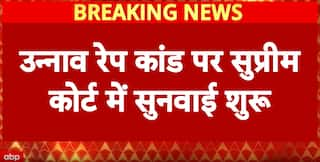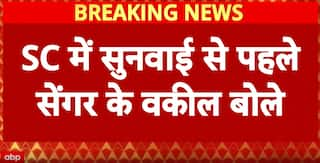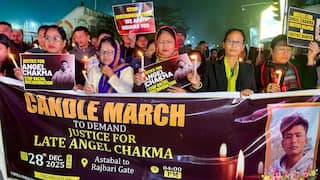Leh Apex Body Withdraws April 7 Border March Amid Prohibitory Orders, Says Will Continue Peaceful Protest
WIthdrawing April 7 border march in Leh, LAB leaders reiterated their commitment to peaceful protests and chain hunger strikes to demand statehood for Ladakh and its inclusion in the Sixth Schedule of the Constitution

The Leh Apex Body (LAB) announced on Saturday its decision to withdraw the proposed march to the China border on April 7, citing concerns over the escalating tension and accusing the administration of turning Leh into a war zone. LAB leaders, including chairman Chering Dorjay and climate activist Sonam Wangchuk, addressed a press conference to explain their decision.
LAB leaders stated that their primary objective of raising awareness about the challenges faced by farmers had been achieved. They highlighted issues such as the loss of prime pasture land to industrial projects in the south and Chinese encroachments in the north, news agency PTI reported. Despite withdrawing the border march, they reiterated their commitment to peaceful protests and chain hunger strikes to demand statehood for Ladakh and its inclusion in the Sixth Schedule of the Constitution.
Expressing concern over the administration's handling of the situation, Wangchuk likened the government's actions to that of a "mad elephant," prioritising electoral gains over national security and public welfare. LAB leaders voiced worries about the deployment of police forces in riot gear and the alleged intimidation of volunteers, which they perceived as attempts to suppress their democratic rights, according to PTI's report.
ALSO READ | Sonam Wangchuk Claims Leh Turned Into 'War Zone', Govt Wants To 'Brand Ladakhis As Anti-Nationals'
Prohibitory Orders and Internet Restrictions In Leh
In response to the proposed border march, Leh District Magistrate Santosh Sukhadeve imposed Section 144 of the Code of Criminal Procedure (CrPC), restricting public gatherings and rallies without prior approval. Additional Director General of Police S D Singh Jamwal also ordered the reduction of internet speeds in Leh, further exacerbating tensions in the region.
LAB leaders demanded the immediate withdrawal of prohibitory orders and the restoration of normal internet services to prevent inconvenience to residents, tourists, and students. They expressed hope for a peaceful resolution and urged the administration to address their grievances and respect their democratic rights.





































